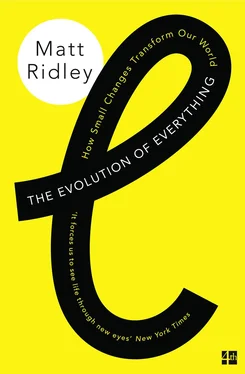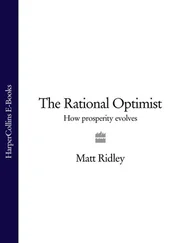1 ...7 8 9 11 12 13 ...22 Which of these systems you prefer depends on your priorities. Jeremy Bentham argued that the common law lacked coherence and rationality, and was a repository of ‘dead men’s thoughts’. The libertarian economist Gordon Tullock, a founder of the public-choice school, argued that the common-law method of adjudication is inherently inferior because of its duplicative costs, inefficient means of ascertaining the facts, and scope for wealth-destroying judicial activism.
Others respond that the civil-law tradition, in its tolerance of arbitrary confiscation by the state and its tendency to mandate that which it does not outlaw, has proved less a friend of liberty than the common law. Friedrich Hayek advanced the view that the common law contributed to greater economic welfare because it was less interventionist, less under the tutelage of the state, and was better able to respond to change than civil legal systems; indeed, it was for him a legal system that led, like the market, to a spontaneous order.
A lot of Britain’s continuing discomfort with the European Union derives from the contrast between the British tradition of bottom–up law-making and the top–down Continental version. The European Parliament member Daniel Hannan frequently reminds his colleagues of the bias towards liberty of the common law: ‘This extraordinary, sublime idea that law does not emanate from the state but that rather there was a folk right of existing law that even the king and his ministers were subject to.’
The competition between these two traditions is healthy. But the point I wish to emphasise is that it is perfectly possible to have law that emerges, rather than is created. To most people that is a surprise. They vaguely assume in the backs of their minds that the law is always invented, rather than that it evolved. As the economist Don Boudreaux has argued, ‘Law’s expanse is so vast, its nuances so many and rich, and its edges so frequently changing that the popular myth that law is that set of rules designed and enforced by the state becomes increasingly absurd.’
It is not just the common law that evolves through replication, variation and selection. Even civil law, and constitutional interpretation, see gradual changes, some of which stick and some of which do not. The decisions as to which of these changes stick are not taken by omniscient judges, and nor are they random; they are chosen by the process of selection. As the legal scholar Oliver Goodenough argues, this places the evolutionary explanation at the heart of the system as opposed to appealing to an outside force. Both ‘God made it happen’ and ‘Stuff happens’ are external causes, whereas evolution is a ‘rule-based cause internal to time and space as we experience them’.
3 3. The Evolution of Life 4. The Evolution of Genes 5. The Evolution of Culture 6. The Evolution of the Economy 7. The Evolution of Technology 8. The Evolution of the Mind 9. The Evolution of Personality 10. The Evolution of Education 11. The Evolution of Population 12. The Evolution of Leadership 13. The Evolution of Government 14. The Evolution of Religion 15. The Evolution of Money 16. The Evolution of the Internet Epilogue: The Evolution of the Future Footnotes Sources and Further Reading Index Acknowledgements By the Same Author About the Publisher
The Evolution of Life 3. The Evolution of Life 4. The Evolution of Genes 5. The Evolution of Culture 6. The Evolution of the Economy 7. The Evolution of Technology 8. The Evolution of the Mind 9. The Evolution of Personality 10. The Evolution of Education 11. The Evolution of Population 12. The Evolution of Leadership 13. The Evolution of Government 14. The Evolution of Religion 15. The Evolution of Money 16. The Evolution of the Internet Epilogue: The Evolution of the Future Footnotes Sources and Further Reading Index Acknowledgements By the Same Author About the Publisher
A mistake I strongly urge you to avoid for all you’re worth,
An error in this matter you should give the widest berth:
Namely don’t imagine that the bright lights of your eyes
Were purpose made so we could look ahead, or that our thighs
And calves were hinged together at the joints and set on feet
So we could walk with lengthy stride, or that forearms fit neat
To brawny upper arms, and are equipped on right and left
With helping hands, solely that we be dexterous and deft
At undertaking all the things we need to do to live,
This rationale and all the others like it people give,
Jumbles effect and cause, and puts the cart before the horse …
Lucretius, De Rerum Natura , Book 4, lines 823–33
Charles Darwin did not grow up in an intellectual vacuum. It is no accident that alongside his scientific apprenticeship he had a deep inculcation in the philosophy of the Enlightenment. Emergent ideas were all around him. He read his grandfather’s Lucretius-emulating poems. ‘My studies consist in Locke and Adam Smith,’ he wrote from Cambridge, citing two of the most bottom–up philosophers. Probably it was Smith’s The Moral Sentiments that he read, since it was more popular in universities than The Wealth of Nations . Indeed, one of the books that Darwin read in the autumn of 1838 after returning from the voyage of the Beagle and when about to crystallise the idea of natural selection was Dugald Stewart’s biography of Adam Smith, from which he got the idea of competition and emergent order. The same month he read, or reread, the political economist Robert Malthus’s essay on population, and was struck by the notion of a struggle for existence in which some thrived and others did not, an idea which helped trigger the insight of natural selection. He was friendly at the time with Harriet Martineau, a firebrand radical who campaigned for the abolition of slavery and also for the ‘marvellous’ free-market ideas of Adam Smith. She was a close confidante of Malthus. Through his mother’s (and future wife’s) family, the Wedgwoods, Darwin moved in a circle of radicalism, trade and religious dissent, meeting people like the free-market MP and thinker James Mackintosh. The evolutionary biologist Stephen Jay Gould once went so far as to argue that natural selection ‘should be viewed as an extended analogy … to the laissez-faire economics of Adam Smith’. In both cases, Gould argued, balance and order emerged from the actions of individuals, not from external or divine control. As a Marxist, Gould surprisingly approved of this philosophy – for biology, but not for economics: ‘It is ironic that Adam Smith’s system of laissez faire does not work in his own domain of economics, for it leads to oligopoly and revolution.’
In short, Charles Darwin’s ideas evolved, themselves, from ideas of emergent order in human society that were flourishing in early-nineteenth-century Britain. The general theory of evolution came before the special theory. All the same, Darwin faced a formidable obstacle in getting people to see undirected order in nature. That obstacle was the argument from design as set out, most ably, by William Paley.
In the last book that he published, in 1802, the theologian William Paley set out the argument for biological design based upon purpose. In one of the finest statements of design logic, from an indubitably fine mind, he imagined stubbing his toe against a rock while crossing a heath, then imagined his reaction if instead his toe had encountered a watch. Picking up the watch, he would conclude that it was man-made: ‘There must have existed, at some time, and at some place or other, an artificer or artificers, who formed [the watch] for the purpose which we find it actually to answer; who comprehended its construction, and designed its use.’ If a watch implies a watchmaker, then how could the exquisite purposefulness of an animal not imply an animal-maker? ‘Every indication of contrivance, every manifestation of design, which existed in the watch, exists in the works of nature; with the difference, on the side of nature, of being greater or more, and that in a degree which exceeds all computation.’
Читать дальше












